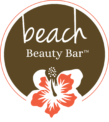What’s safe for your skin when it comes to using food oils? There’s nothing more frustrating than waking up with a fresh crop of white and red bumps lurking on your face. It seems your middle school days aren’t as far behind you as you thought. Most people don’t realize the correlation between the type of food oils they’re using and their acne breakouts. When pimples just won’t budge, their existence could actually be linked to the food you eat. Don’t worry; there are easy food oil swaps that could leave your face looking clearer sooner.
The first order of business is to avoid vegetable oils and industrial fats.
Getting rid of all unhealthy fats loaded with omega-6 should be your first (and easiest) step towards beating chronic inflammation and acne caused by food oils.
Your body produces hormones, causing inflammation, which in turn traps dirt and bacteria in your pores, forming acne pimples and cysts. And the majority of these hormones are produced in reaction of the type of foods that you eat. Choose your oils carefully! Once you know what is causing your acne, a simple diet change can help reduce the amount of acne that you have dramatically.
So what is this secret troublemaker causing all of your acne problems? Vegetable oil is. Vegetable oil can cause the inflammatory hormones that make your acne worse as quickly as an hour after you eat. Keep in mind that the majority of processed foods contain vegetable oil to some extent, with the worst offenders being greasy and fried foods.
Vegetable Food Oils To Avoid:
Canola oil
Soybean Oil
Wheat germ oil
Corn oil
Sesame oil
Sunflower oil
Peanut oil
Cottonseed oil
Grapeseed oil
Margarine
Shortening
Processed Foods That Often Contain Industrial Fats:
Fried Foods
Processed Foods
Coffee Creamers
Salad Dressings
Margarine
Vegetable Oil Is Literally Everywhere
Deep fryers, commercial kitchens and restaurants, salad dressings, mayonnaise, movie popcorn, etc etc etc..
Good luck eating out. I mean, seriously good luck. I get it because I like to eat out with friends and family too. The problem is all the “chef’s special sauces” and “house dressing” you will run into. You will never have any idea when these contain vegetable oil and even if you ask, the waitstaff often doesn’t know the difference.
If you cook with these oils, switch to omega-balanced alternatives like extra-virgin olive oil, extra-virgin coconut oil, avocado oil, or grass-fed ghee butter. They might cost a bit more, but the taste and nutritional benefits are worth it.
If you’re looking for solid salad dressing replacements, the “Primal Kitchen” brand actually has pretty tasty dressings that use healthy fats, including avocado oil, cage-free eggs, and organic apple cider vinegar.
So What Oils Can I Eat?
Other than pure animal fat, only oils that have been cold-pressed, expeller-pressed unrefined, or churned. Personally, I eat extra-virgin olive oil, expeller-pressed unrefined coconut oil, organic butter or ghee, and bacon fat.
You may use whatever makes sense and is convenient for you as long as you avoid the garbage, modern day, chemically extracted vegetable oils. That will be most of them.
Read The Ingredients
You will want to avoid anything that says refined, hydrogenated, and partially-hydrogenated. I have found plenty of lard on the shelf that contains hydrogenated (industrially processed) fats in it.
It’s not just cooking oils you need to be careful of – you can find these oils in just about every processed food known to man. Always check the ingredients list. A decent rule of thumb is that if it’s cheap and comes wrapped in plastic, it probably has vegetable oils in it. For example, jars of olives are often packed in sunflower oil; nuts are often roasted in cottonseed oil; dressings are often made from grapeseed oil.
Most packaged foods, baked goods, and restaurant foods contain vegetable oils. You might even have them in your own kitchen! To clear acne naturally, switch to healthier, unrefined vegetable oils. Always read the ingredient list of packaged foods and choose those that don’t contain vegetable oil.
The Bottom Line on Acne Safe Food Oils
Once I started reading every label I became aware of how pervasive this problem is. You have to become a super vigilant food expert to fight a winning war against acne. This is part of the reason 85% of people are affected. Our food supply is completely tainted and you have to carefully pick out the satisfactory stuff.
Ultimately, I think that olive oil and avocado oil are both great, neutral options for all your cooking and baking needs if you’re prone to acne. Avocado oil has a higher smoke point than olive oil, but it is more expensive. I hope this helps make your search for healthy cooking oil a little less daunting and your dishes a lot more delicious. Remember that fresh, whole foods will always power over-processed alternatives.
Wondering about which ingredients clog your pores? — Schedule an acne consultation, and we will happily provide you everything you need to know.
Cheers to clear!
Rene



